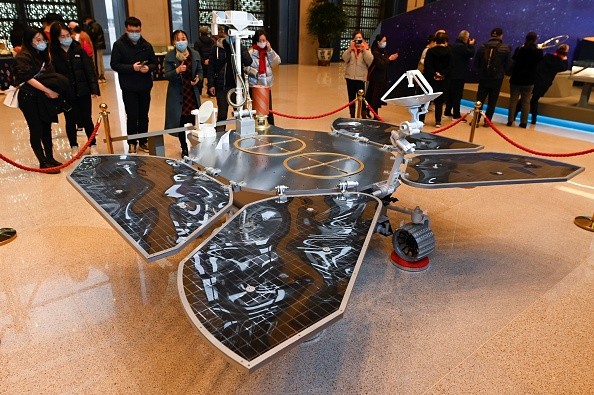For the second time, China's team won the International Astronautical Federation (IAF) World Space Award for its Tianwen-1 mission to Mars based on a report from Space.

It was launched from Earth two years ago, specifically on July 23, 2020, while the rover landed on Mars only in May last year. The mission concluded three months after it landed successfully. The rover was named after a Chinese mythology character named Zhurong, the god of fire.
73rd International Astronautical Congress
It was awarded last Sunday, September 28th, during the 73rd International Astronautical Congress (IAC) in Paris. The team was introduced at the event and recognized by the IAF President, Pascale Ehrenfreund.
An overview of the mission, which was presented by Vice President of China Academy of Space Technology Jillian Wang, revealed the achievements of the team, including global mapping and returning data evidence for the Martian ocean.
IAF World Space Award recognizes people who made an impact on Space exploration. It is considered one of the most prestigious awards.
Tianwen-1
The rover is currently in the rehabilitation stage since May this year as it was affected by the cold weather. However, CGTN reported that it would resume its work later this year.
It weighs 530 pounds or 240 kilograms and will be expected to report to work when more solar energy reaches the planet. Tianwen 1 and Zhurong will search for water-related evidence and will continue to explore Mars for other research.
Future Explorations
Wang Qiong of Lunar Exploration and Space Engineering Centre presented the plans of the country regarding space activities for the next ten years.
Now in its fourth phase, China's Lunar Exploration Program will be conducted with three lunar explorations that will be named Chang'e 6, 7, and 8.
Missions will also take back samples from the South Pole to the side of the mood as the country test the resources, environment, and habitat. The mission will be scheduled for 2030.
The International Lunar Research Station will be concluded in 2025. The country aims for this to operate by 2035, so the construction shall take place in 2030.
Currently, four missions are conducted by China for Planetary Exploration of China which are Tianwen 1 that already achieved its goal, Tianwen 2 that is expected to bring back samples from Mars' asteroid, Tianwen 3 that plans to return a sample from a planet's surface, and Tianwen 4 that plans to explore the Jovian system in Jupiter.
As per the reports, China wishes to partner with more agencies as they conduct these, like space agencies, companies, universities, and others. Wang said that "As always, international partners are welcome to join us."
This article is owned by TechTimes
Written by Inno Flores
ⓒ 2026 TECHTIMES.com All rights reserved. Do not reproduce without permission.




